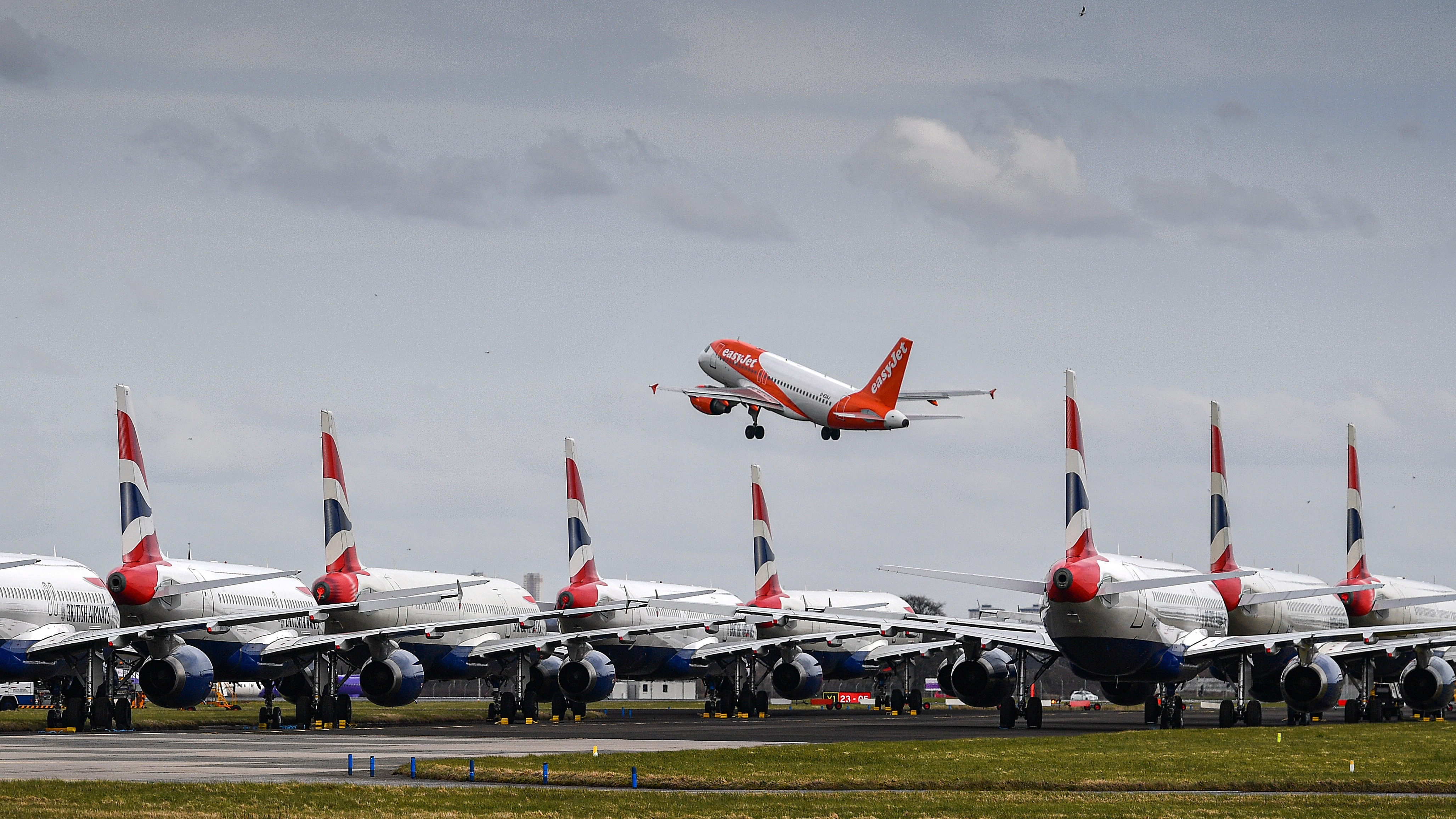‘Full of hot air’: climate experts exposed as academia’s most frequent flyers
Study results trigger calls for environmentalists to ‘look in the mirror’

A free daily email with the biggest news stories of the day – and the best features from TheWeek.com
You are now subscribed
Your newsletter sign-up was successful
Climate change scientists take more flights more than other academics despite global warming fears, a new study has revealed.
The anonymous survey of more than 1,400 researchers from countries worldwide found that scientists specialising in the climate crisis travelled by air for work around five times a year on average, while researchers in other fields took four flights. And “levels of flying rose with job seniority”, with climate change professors taking around nine flights, compared with eight for their academic peers, according to Cardiff University, which coordinated the study.
“Even when trips for fieldwork were removed from the comparison, climate scientists still flew more than scientists from other disciplines,” The Times reports.
The Week
Escape your echo chamber. Get the facts behind the news, plus analysis from multiple perspectives.

Sign up for The Week's Free Newsletters
From our morning news briefing to a weekly Good News Newsletter, get the best of The Week delivered directly to your inbox.
From our morning news briefing to a weekly Good News Newsletter, get the best of The Week delivered directly to your inbox.
The study findings, outlined in a paper in the journal Global Environmental Change, show that climate scientists also took an average of three international flights a year for personal reasons, the same as other researchers, even though they had “higher levels of awareness and concern about the impact of aviation on climate change”.
But the climate experts were also more likely to take steps to reduce or offset the emissions from their flights, according to the results of the survey, which was conducted before the Covid-19 pandemic. And almost 30% of climate researchers said they had chosen not to travel to a work event because of the associated carbon footprint, compared with just 5% of other researchers.
Kevin Anderson, a University of Manchester professor of climate change who was not involved in the study, said the report made for “uncomfortable” reading and “must be a catalyst for rapid change”.
“We need to take a long, hard look in the mirror,” added Anderson, former director of the Tyndall Centre for Climate Change Research.
A free daily email with the biggest news stories of the day – and the best features from TheWeek.com
Study leader Professor Lorraine Whitmarsh said the findings were “unexpected” but suggest that “knowledge alone is not enough” to tackle global warming.
“Crucially, our research demonstrates the need for policies and ways of working to encourage and enable low-carbon travel and use of virtual alternatives – something which is already happening in light of Covid-19,” she noted.
Flying is widely regarded as the most polluting form of transport, with some climate campaigners, such as Swedish teenager Greta Thunberg, shunning air travel because of the environmental impact.
Chas Newkey-Burden has been part of The Week Digital team for more than a decade and a journalist for 25 years, starting out on the irreverent football weekly 90 Minutes, before moving to lifestyle magazines Loaded and Attitude. He was a columnist for The Big Issue and landed a world exclusive with David Beckham that became the weekly magazine’s bestselling issue. He now writes regularly for The Guardian, The Telegraph, The Independent, Metro, FourFourTwo and the i new site. He is also the author of a number of non-fiction books.
-
 The ‘ravenous’ demand for Cornish minerals
The ‘ravenous’ demand for Cornish mineralsUnder the Radar Growing need for critical minerals to power tech has intensified ‘appetite’ for lithium, which could be a ‘huge boon’ for local economy
-
 Why are election experts taking Trump’s midterm threats seriously?
Why are election experts taking Trump’s midterm threats seriously?IN THE SPOTLIGHT As the president muses about polling place deployments and a centralized electoral system aimed at one-party control, lawmakers are taking this administration at its word
-
 ‘Restaurateurs have become millionaires’
‘Restaurateurs have become millionaires’Instant Opinion Opinion, comment and editorials of the day
-
 Earth is rapidly approaching a ‘hothouse’ trajectory of warming
Earth is rapidly approaching a ‘hothouse’ trajectory of warmingThe explainer It may become impossible to fix
-
 The plan to wall off the ‘Doomsday’ glacier
The plan to wall off the ‘Doomsday’ glacierUnder the Radar Massive barrier could ‘slow the rate of ice loss’ from Thwaites Glacier, whose total collapse would have devastating consequences
-
 Can the UK take any more rain?
Can the UK take any more rain?Today’s Big Question An Atlantic jet stream is ‘stuck’ over British skies, leading to ‘biblical’ downpours and more than 40 consecutive days of rain in some areas
-
 As temperatures rise, US incomes fall
As temperatures rise, US incomes fallUnder the radar Elevated temperatures are capable of affecting the entire economy
-
 The world is entering an ‘era of water bankruptcy’
The world is entering an ‘era of water bankruptcy’The explainer Water might soon be more valuable than gold
-
 Climate change could lead to a reptile ‘sexpocalypse’
Climate change could lead to a reptile ‘sexpocalypse’Under the radar The gender gap has hit the animal kingdom
-
 The former largest iceberg is turning blue. It’s a bad sign.
The former largest iceberg is turning blue. It’s a bad sign.Under the radar It is quickly melting away
-
 How drones detected a deadly threat to Arctic whales
How drones detected a deadly threat to Arctic whalesUnder the radar Monitoring the sea in the air